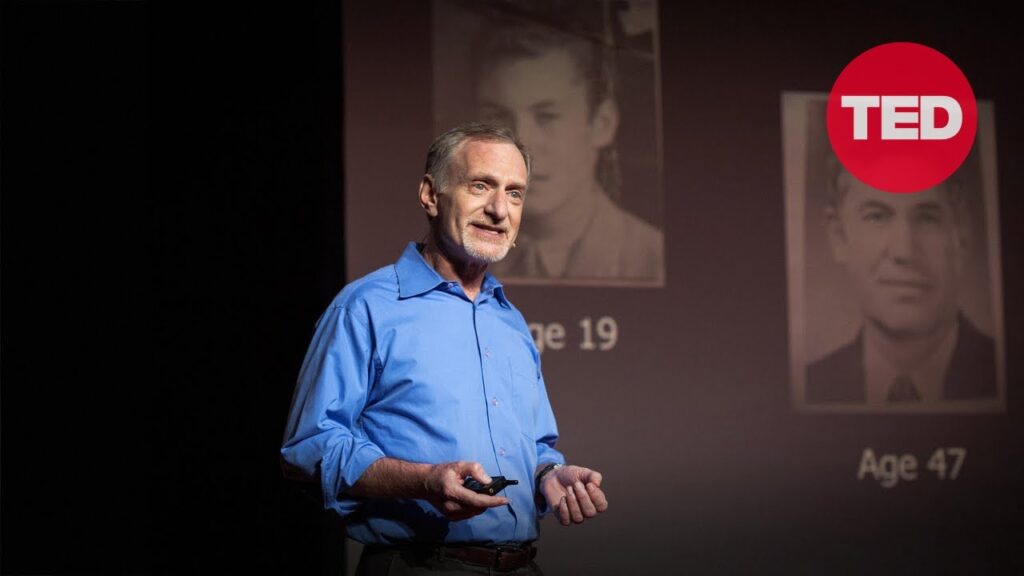In today’s fast-paced, success-driven world, many people believe that happiness stems from wealth and fame. But as Robert Waldinger, the current director of the Harvard Study of Adult Development, explains in his enlightening TED Talk, the secret to a happy and healthy life lies elsewhere: in our relationships. Waldinger shares profound insights from the world’s longest-running study on adult life, which tracked the lives of 724 men over 75 years. Here’s a comprehensive breakdown of his talk and the actionable takeaways that can guide you toward a more fulfilling life.
The Misconception of Happiness: Chasing Wealth and Fame
Waldinger begins by noting that when asked about their life goals, many millennials today focus on getting rich and famous. They believe these external markers of success are key to living a good life. However, decades of research tell a different story. Wealth and fame don’t necessarily lead to happiness, and neither does working harder or achieving more. So, where should we focus our energy?
The Harvard Study: A Rare Glimpse into Lifelong Happiness
The Harvard Study of Adult Development is one of the few long-term studies of its kind, offering unique insights into what truly makes people happy and healthy. For over 75 years, researchers tracked the lives of two very different groups: Harvard sophomores and boys from some of Boston’s poorest neighborhoods. The study continues today, even extending to the children of the original participants.
What sets this study apart is its comprehensive nature. Researchers didn’t rely on people’s memories, which are often flawed. Instead, they collected data through direct interviews, medical exams, and close observations of relationships. The findings are both surprising and remarkably consistent.
The Big Lesson: Relationships Are the Foundation of a Good Life
The study’s most striking conclusion? Good relationships are the key to happiness and health. Waldinger emphasizes three important takeaways from the study:
1. Social Connections Improve Health and Longevity
- People who are more socially connected—whether to family, friends, or their communities—are not only happier but also physically healthier and tend to live longer.
- Loneliness, on the other hand, is detrimental. Those who are isolated, whether by choice or circumstance, are more likely to experience earlier declines in physical and mental health.
Actionable Takeaway: Strengthen your social connections. Prioritize time with loved ones, whether it’s through regular family dinners, reaching out to old friends, or getting involved in your community. Social interaction is a powerful buffer against the negative impacts of loneliness.
2. The Quality of Relationships Matters More Than Quantity
- It’s not just about having a lot of friends or being in a committed relationship—it’s the quality of those relationships that matters. Living in the midst of conflict, for example, is harmful to both mental and physical health.
- On the flip side, people in warm, supportive relationships tend to live longer, happier lives, even if their relationships are not conflict-free. In fact, people who feel secure in their relationships experience less emotional pain during tough times, even when they face physical challenges.
Actionable Takeaway: Focus on the quality of your relationships. It’s more important to have a few close, supportive connections than a large number of shallow ones. Invest time in nurturing these relationships, resolving conflicts, and offering support during tough times.
3. Good Relationships Protect Both the Body and the Brain
- A fascinating aspect of the study reveals that good relationships don’t just protect our bodies—they also protect our brains. People in secure relationships where they feel they can count on each other tend to have sharper memories as they age.
- Even in relationships that include frequent arguments, as long as there’s a sense of reliability, the negative effects on memory are minimal.
Actionable Takeaway: Create strong, dependable bonds. Whether it’s with a spouse, family member, or close friend, knowing that you have someone to lean on during tough times has a profound impact on both your physical and mental well-being as you age.
Why Is This Wisdom Hard to Embrace?
Despite the overwhelming evidence, Waldinger notes that focusing on relationships is often easier said than done. Why? Because relationships are messy, complex, and require constant attention. Many people are drawn to quick fixes and believe that success and material wealth will bring lasting happiness. But, as the Harvard study shows, true happiness comes from the ongoing, lifelong work of maintaining good relationships.
Practical Steps to Lean Into Relationships
Regardless of your age—whether you’re 25, 40, or 60—it’s never too late to start focusing on relationships. Waldinger offers a few simple yet powerful suggestions:
- Replace screen time with people time: Instead of spending hours scrolling through social media or watching TV, prioritize face-to-face interactions with friends and family.
- Liven up stale relationships: Sometimes, long-term relationships need a spark. Try new activities together, like taking long walks, going on date nights, or simply finding new ways to connect.
- Heal old wounds: If you have a family member or friend you haven’t spoken to in years due to a disagreement, consider reaching out. Holding onto grudges can take a toll on your emotional health, while healing old wounds can bring peace.
Final Thought: The Good Life is Built with Good Relationships
In the end, the message is clear. The good life isn’t about fame, fortune, or professional achievements—it’s about the relationships we build and nurture over time. As Waldinger beautifully concludes with a quote from Mark Twain: “There isn’t time, so brief is life, for bickerings, apologies, heartburnings… There is only time for loving.”
You Might Also Like:
- Discover Your Next Great Read: New York Times Best-Selling Books
- 7 Must-Read Books Before Turning 25
- Crack the Code to Wealth: “The Algebra of Wealth” by Scott Galloway
- Discovering True Wealth in The Book ‘The Wealth Money Cannot Buy’ by Robin Sharma (Book Summary)
- Book Summary: Just the Good Stuff by Jim VandeHei – Redefining Success
- 7 Must-Read Books for Money Management
